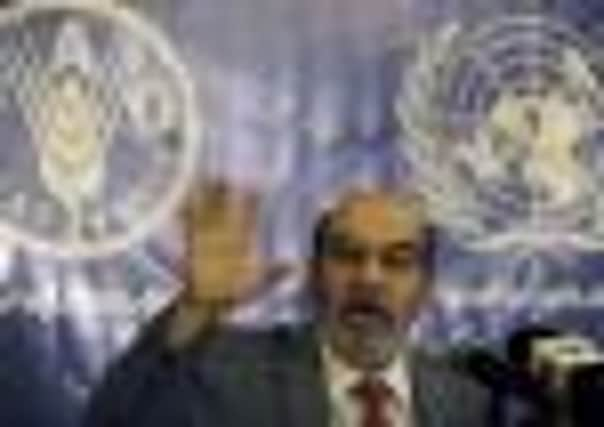Famine in Somalia is declared over, but dangers persist


The body’s Food and Agricultural Organisation said it had reassesed the crisis from a “famine” to a “humanitarian emergency”.
However, it said that 2.3 million people – 31 per cent of the country’s population – remain in a food crisis situation and still need assistance.
Advertisement
Hide AdAdvertisement
Hide AdFamine in Somalia was declared last July after successive failed rains. Hundreds of thousands of Somalis fled to refugee camps in Kenya, Ethiopia and the Somali capital Mogadishu in search of food.
The famine was exacerbated by the militant group al-Shabab, which has let few aid agencies into the area it controls in south-central Mogadishu.
Jose Graziano da Silva, director-general of the UN’s Food and Agriculture Organisation, warned that without assistance over the next three months “those people will not survive”.
“The Horn of Africa will be the most important region and we’ll be doing our best here to improve food security,” he said. “We do believe it is possible to have a Horn of Africa free of hunger.”
Mark Bowden, the UN’s humanitarian co-ordinator for Somalia, said that a massive increase in assistance last year helped lift Somalia out of famine conditions. But he said the international community needed to keep helping.
“The gains are considerable but they are also very fragile and one of the things I want to highlight is we have a temporary respite in terms of addressing the crisis in Somalia,” Mr Bowden said.
“The years of conflict and poor rains have left millions of Somalis vulnerable. The mortality rates in southern Somalia are still among the highest in the world.”
The announcement that the famine had ended was greeted with incredulity and dismay by refugees in Mogadishu.
Advertisement
Hide AdAdvertisement
Hide AdFadumo Samow, a refugee at Badbado camp, said reports were “far from the truth”.
Ahmedey Bashir, a father-of-five, said he feared the announcement would stop famine victims from getting aid.
“The famine is almost over but we are desperately dependent on the food aid,” he said.
“If they stop it, we will be back to it again. Our children are now better than before, but we ask the United Nations still to help us.”
Al-Shabab this week banned the international Red Cross from operating in southern Somalia. Mr Bowden said any reduction in assistance “is of critical concern to us” and he urged all sides of the conflict not to impede humanitarian aid.
The UN does not have a death toll from Somalia’s famine but claims tens of thousands of people died, mostly between April and September last year. A study will be commissioned to look at the death toll in more detail, one UN official said yesterday.
Senait Gebregziabher, the head of Oxfam in Somalia, praised the work against hunger but said that Somalia “is still in the throes of its worst humanitarian crisis in decades” and said that insecurity is disrupting aid supplies, warning the world not to turn its back on the crisis.
“We are seriously concerned that if people do not have the security to tend their crops and animals, or the freedom to access clean water and food in the markets, the humanitarian situation will deteriorate once again,” Ms Gebregziabher said.
Advertisement
Hide AdAdvertisement
Hide AdAfter months without rainfall across the region, the UN declared several parts of Somalia a famine zone. Exhausted, rail-thin women were stumbling into refugee camps in Kenya and Ethiopia.
The journeys sometimes took weeks, and weaker family members – children and the elderly – were left behind to die alone.
The UN expanded Somalia’s famine zone weeks later, defined as when two adults or four children per 10,000 people die of hunger each day and a third of children are acutely malnourished.